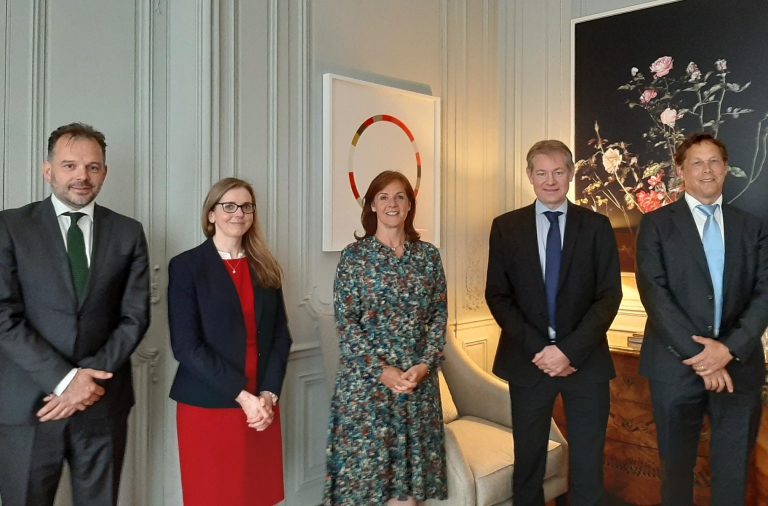Midlands businesses seek funding for growth, despite economic climate
East Midlands local economy to be levelled up with historic billion pound devolution deal
Private equity investor acquires Leicestershire’s CTS Group
IoD appoints Paul Hooper-Keeley to lead Derbyshire and Nottinghamshire branch
The Institute of Directors (IoD) has appointed Paul Hooper-Keeley to lead its Derbyshire and Nottinghamshire branch.
Paul is Managing Director of Intervallum, a provider of finance director, chief financial officer and non-executive director services. Intervallum supports businesses through turnaround situations, growth and exit transaction projects.
He has been a board-level director since 1996 and was the IoD’s 25th Chartered Director, qualifying in 2000.
Paul has served as an ambassador for the IoD’s Greater Birmingham branch and holds non-executive director positions with B: Music and Lichfield Garrick Theatre.
He is a Fellow of the Chartered Institute of Management Accountants (CIMA) and holds an MBA from Edinburgh Business School.
Paul said: “I want to help to build better directors in this branch. This starts from the aspirations at student level in our universities to right across the spectrum of age and experience. We will build a community of directors and put on events that add value to their careers and businesses.”
IoD members range from start-up entrepreneurs to directors of large SMEs and international companies, as well as the public and third sectors.
East Midlands business confidence holds steady despite challenges
Value of fraud declines in the Midlands
The number of alleged fraud cases exceeding £100k heard in Crown Courts across the Midlands dropped from 27 cases with a total value of £20.3m during the first half of 2021 to 16 cases with a total value of £13.7m for the same period in 2022, according to KPMG UK’s Fraud Barometer.
Looking across the alleged fraud cases heard in the Midlands between 1 January and 30 June 2022, the general public remained the most common victims, suffering losses amounting to £1.5m across eight cases. Businesses and government agencies were the two other main class of victims, with alleged losses amounting to a combined £2m across six cases.
The primary perpetrators were professional criminals, this is consistent with the national trend observed for the first half of 2022.
There was a notable change in the absence of alleged fraud committed against financial institutions, a contrast to H1 2021 when the value of alleged fraud amounted to £1.1m. Another notable change was the decrease in the number of cases allegedly perpetrated by individuals in management roles or employees, down 53% from 15 cases to seven in the same period.
Julie Bruce, Forensic lead for KPMG in the Midlands, said: “As the cost-of-living crisis continues to bite, members of the general public in particular need to stay alert for instances of fraud. The data has highlighted that fraud can take many forms and will have a lasting impact on those who have fallen victim.
“It is paramount that business and organisations ensure that they have anti-fraud controls and deterrents in place to defend fraudulent activity.”
Case studies to reach the region’s courts during this period include:
- A prominent businessman abused his role as a pension trustee and allegedly invested £10m from employee pension schemes into his new motorcycle business.
- A couple were jailed after defrauding the public purse in a scheme that exploited government systems designed to support businesses. The pair allegedly submitted over £7m in fake invoices which allowed them to claim over £1m in VAT from HMRC.
- A man has been jailed after scamming almost £500k from unsuspecting victims in a fraudulent car-selling scheme.












